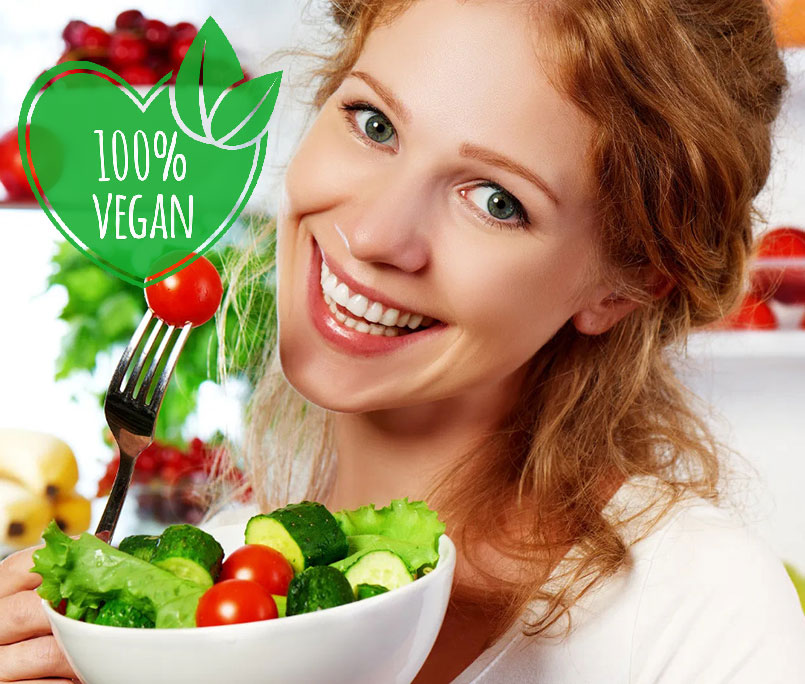What is Veganism?
Veganism, or veganism, more than just a diet, is a philosophy and lifestyle that seeks to exclude all forms of exploitation and persecution of animals for food, clothing or any other purpose.
More than 50% of young adults want to change their diets to help the planet, according to a new study. New research says that one-fifth of 16-24-year-olds have reduced their milk consumption in the past 12 months.

According to a study, more than 50 percent of young adults are willing to change their diets to benefit the planet. The study's findings said that one-fifth of young adults aged 16 to 24 had reduced their milk consumption in the past 12 months, and about half (43 percent) said they had advised friends and families to reduce their impact on the environment.
Moreover, 45 percent of older men (75-78 years old) said they drank milk every day or most days. Three quarters of 45-75 year olds said they were concerned about the environment, such as climate change or damage to the planet. However, 35 percent said they were unwilling to change their diets to benefit the environment.
Also, a quarter (24 percent) said they 'don't care about the environmental impact of their diet'. When it comes to meat, 45 percent of respondents aged 75-67 admitted that they never intentionally had a vegan meal. When it comes to vegetarian meals, that dropped to 51 percent.

Apply Now
Veganism, or veganism, more than just a diet, is a philosophy and lifestyle that seeks to exclude all forms of exploitation and persecution of animals for food, clothing or any other purpose.
To explain very fundamentally, vegetarianism is to adopt a diet that does not contain animal food, to act consciously on issues such as the sanctity of living life and the sustainability of nature.
Vegetarian diets vary based on the foods they contain and exclude. Vegetarian diet types are; Lacto-vegetarian, Ovo-vegetarian, Lacto-ovo, Pescatary and Vegan
Vegan diets only involve eating directly plants (such as vegetables, grains, nuts and fruits) or foods made from plants. As it is known, vegans never consume meat, nor do they eat foods from animals such as dairy products and eggs.
Vegan diets only involve eating directly plants (such as vegetables, grains, nuts and fruits) or foods made from plants. As it is known, vegans never consume meat, nor do they eat foods from animals such as dairy products and eggs.
Many vegans avoid eating honey because commercial honey farming can harm the health of bees. The main function of honey is to provide bees with carbohydrates and other essential nutrients such as amino acids, antioxidants and natural antibiotics.
The vegan certification process can take from 1 week to 8 weeks, depending on the production conditions of the product. It all depends on the components, processes, suppliers and how well the suppliers communicate and how quickly the V-Mark expert team responds to their demands.
V-Mark vegan vegetarian certified products can use the V-Mark vegan vegetarian logo on their packaging, so vegan consumers around the world can get the product they buy with confidence and confidence.
Vegan Vegetarian Certificate ensures that the vegan or vegetarian consumer can safely select products suitable for their lifestyle at a glance. Therefore, it can be used for any product that can be proved by various tests and conformity audits and that we can encounter in our daily life.
Vegan diets only involve eating directly plants (such as vegetables, grains, nuts and fruits) or foods made from plants. As it is known, vegans never consume meat, nor do they eat foods from animals such as dairy products and eggs.
Vegan diets are known to help people lose weight. However, they also offer a number of additional health benefits. For example, a vegan diet can help protect your heart.
Everyone's metabolism is different, and different diets may produce different results for each person. However, there are many notable health benefits of maintaining vegetarian and vegan diets.
The vegan certificate is a certificate issued by accredited organizations to products that do not contain an animal ingredient and that are proven by various conformity assessments and tests in their production that no animal is exposed to any exploitation.
Vegan shoes are shoes that do not harm any animals and are made without using animal products in any way. It also excludes products tested on animals. This does not include many of the materials traditionally used in shoe making, such as leather, wool, fur, and some adhesives.
Vegan cosmetics defines cosmetic products produced by the fact that any product produced in the cosmetic industry does not contain any animal ingredients and no animals are used for testing.
Unfortunately, it is very difficult to be sure whether the product is vegan unless there is a vegan symbol certified by an accredited and fully independent organization such as the V-Mark. The most logical thing to do is to reach out directly to the manufacturing companies and ask; however, there is no certainty that you will get an honest answer.